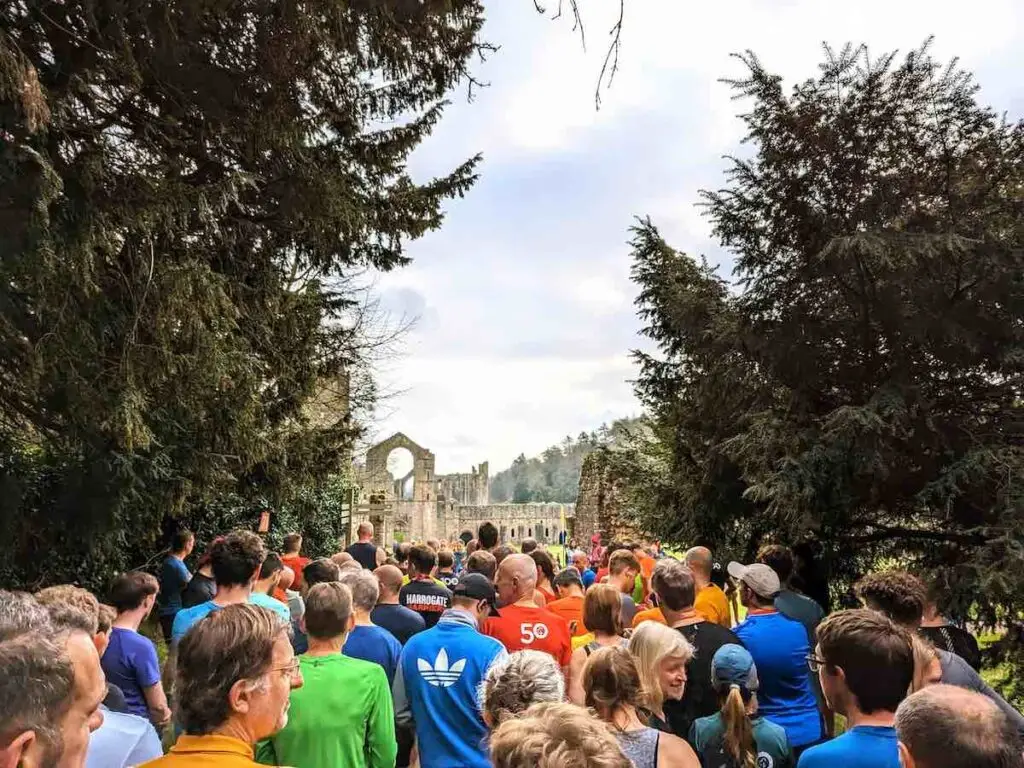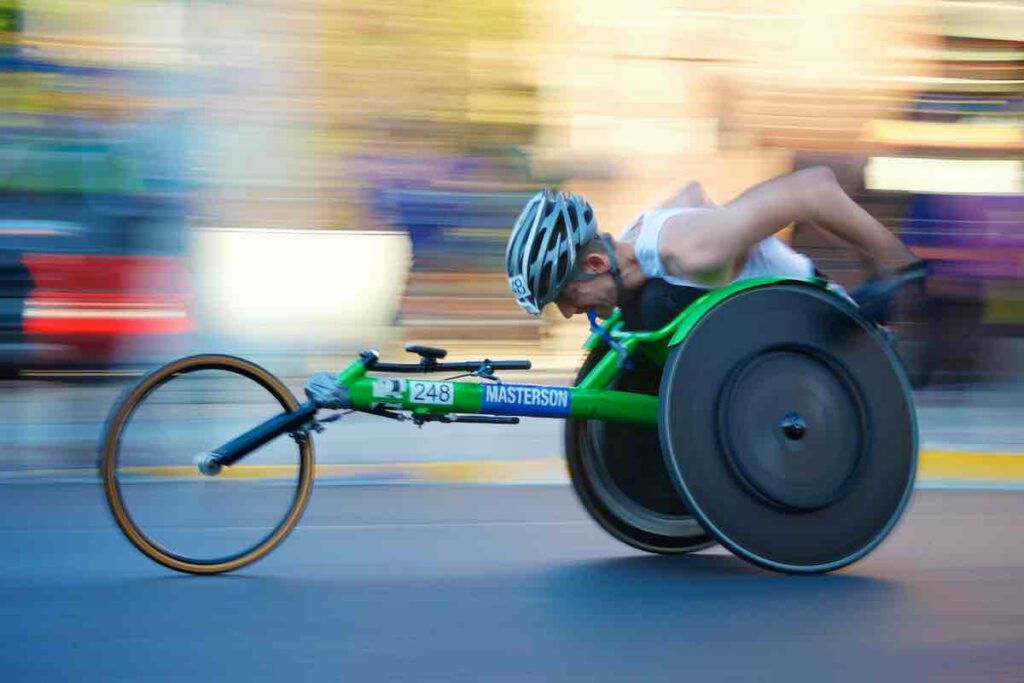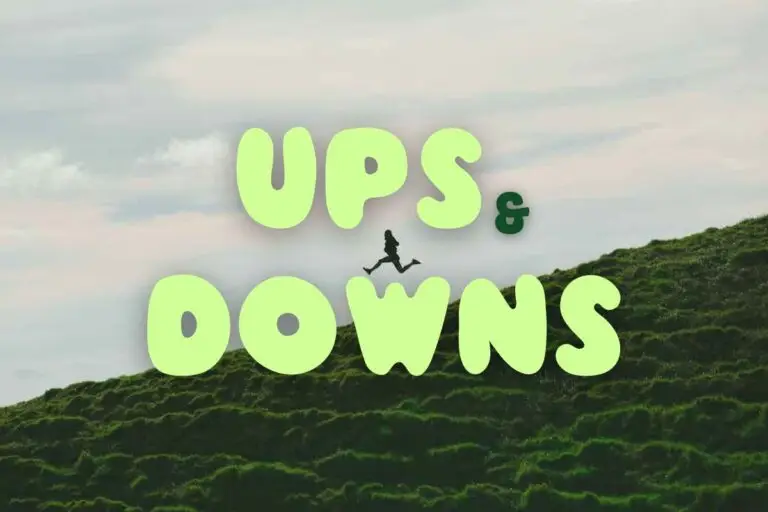As any regular runner will know, the therapeutic benefits of running are up there with any cardiovascular gains.
So much so, I’ve dedicated much of my writing on Joy Runs to the emotions of running. What it feels like. What it gives back. How running as therapy is an important act of self-love.
The best chapter of my life started when I took up running and it’s been a reliable mental health companion ever since.
I’m not alone. Movement is medicine.
Add more joy to your runs 💌
- 1 Challenge p/w
- Run your way
- 100% Free
Running as therapy has gained considerable attention in recent years, as more people crave natural highs to their lows. There’s a level of solace only physical exercise can bring to offset the prevalence of anxiety, stress, and depression in modern life. For a long time now, running and jogging have been prescribed by medical professionals and even gained traction as part of social prescribing initiatives such as the “parkrun” practice, an initiative linking general practices to local parkruns.
In this article, I’ll share why I consider running to be kind on the mind and share some tips for helping you to unlock its full mental health benefits with every outing. We’ll cover running benefits such as:
- Improved mental health and mood
- Reduced stress and anxiety levels
- Enhanced self-belief and confidence
- Increased focus and concentration
- Relaxation, reflection and letting go
- Building positive habits and traits
- Tracking progress and a sense of achievement
- Processing emotions with others in a group run
Soul Runs: 10 Reasons Why Running Is Therapy
#1: A Joyful Sense of Accomplishment
You don’t become confident and more well-rounded by shouting affirmations in the mirror.
Commit to a regular running schedule and you’ll take tremendous satisfaction in both taking an active role in your mental wellbeing and release your inner athlete.

We all started as a newbie runner. Yes, it’s difficult at first but also incredibly rewarding. As you start to build up your distance and set and break through targets, you learn what you’re truly capable of and dream bigger. Running progress fuels self-belief that bleeds into the rest of your life. More seems possible. You grow as an individual, an in turn crave bigger challenges and adventures. Ultimately becoming the best version of yourself.
Running’s beauty is that the uplift in mood and sense of achievement is almost instant. Get through the initial discomfort in those first runs and your fitness levels quickly improve, and new milestones come thick and fast. This in turn, feeds even greater ambition and goal smashing, creating a tornado of momentum in your life.
#2: Build a Stoic Resilience to Life’s Challenges
Not all rewards from running are immediate. Sometimes they’re a gift to your future self, even if you don’t know it at the time.
A useful toolkit for life and sport, Stoic athletes attach themselves to their intent and actions, rather than the outcome, which is ultimately out of their control. In the example of running a race, they’ll always be somebody faster than you, but running to your full potential is what matters most. In work, it could be putting in the hours to truly master your trade, instead of getting caught up in corporate politics or obsessing over climbing the corporate ladder.

It’s about controlling the controllables, ignoring everything else. The Greek Stoic philosopher, Epictetus, said it best in his famous aphorism, “We cannot choose our external circumstances, but we can always choose how we respond to them.”
The central tenant of Stoicism is that body and mind are one. A healthy mind equals a healthy body—it’s strong, resilient, uncluttered, agile, and functional. A masterclass in managing emotion.
Running has definitely built up my mental strength. It’s taught me how to maintain my cool under pressure and not to overthink or overreact to situations. To keep applying effort to my own game instead and to face life’s challenges with greater confidence.
#3: Running is a Constant Source of Inspiration
One underrated mental health benefit of running is the untapped visual and visceral inspiration.
There’s no better way to move beyond writer’s block, dream up new ideas, or work through a new challenge.
You’re free to wander, as is your mind. It’s only when we relieve ourselves from high-pressure situations and start to drift can we do our best thinking.

We’ve all had that epiphany when on a run or in the shower. Our subconscious mind has been searching for that killer idea or solution all along, but it’s only able to enter your conscious mind when there’s sufficient room.
Research shows a 60% boost in creative output when you lose yourself in exercise first thing in the morning. The ideas tap keeps flowing and you find a new way to express yourself, allowing you to move from consumer to creator. A must for creative souls.
The former Nike chief marketing officer, Greg Hoffman, sums this up perfectly in his book Emotion By Design:
“Leaving inspiration to chance, where it just hits you in a random moment, is not a recipe for sustained success in the creative world. You have to go out and find it. While some may be born with a seeker's mentality, others can learn to be more curious. Curiosity is a muscle, and muscles need to be trained. Knowing this allowed Nike to consistently fuel its imagination and build a culture of creative curiosity.”
Greg Hoffman, Nike Tweet
Running is that for me. Both a source of creative curiosity and a creative outlet, as I use the discoveries and epiphanies on my runs to fuel the Joy Runs challenges and community.
#4: Mindful Running Helps You to Be Present
We’ve all heard about flow state. That sense of fluidity between your body and mind, where you are totally absorbed by and deeply focused on something, beyond the point of distraction.
It’s entirely possible to meditate when running and bring more active energy to your meditation practice.

Great things happen when we intentionally shift our attention outward instead of inward.
The repetitive and rhythmic nature of running fosters a meditative state, which can effectively clear one’s head and make space for deep reflection. What’s more, by focusing on your breathing and the rhythm of your footsteps, running empowers us to concentrate fully on the present moment, cultivating inner peace and fostering emotional resilience.
I’ve tried to build more mindful running into my training, focusing on my breathing and my surroundings. I feel a deeper connection with nature and understand my role as a participant in a larger story, putting everything into perspective. Every mile seemingly richer in minor thrills waiting to be discovered – be they in the countryside, the tide ebbing and flowing, forest running under a blanket of trees, the wonders or wildlife or a beautiful vista.
I write this hot on the heels of a recent holiday on a cruise, where long runs on the cruise ship running track helped me to tune out of work and into what really matters.

By being present, I choose to be grateful for all that is good in life and can better weather negative experiences, allowing me to maintain inner peace long after I’ve physically recovered.
#5: Running Keeps Brain Cells Healthy
Running is a scientifically-proven ally in fighting mental fatigue.
Researchers found that slow and steady aerobic exercise can boost neuroplasticity and protect against neurodegeneration. The daily benefits of improved cognition will be borne out in how you:
- Think
- Read
- Write
- Reason
- Remember
- Even sleep quality
In short, choosing running as a form of therapy benefits every area of your life, from learning to decision making and communication and creative ideation. Brain fitness can be far more fun than crosswords and Sudoku puzzles.
#6: Using Running as the Enemy of Bad Habits
Running can be addictive… in both a good and bad way.
It can either take over your life or be the cornerstone of a healthy lifestyle.
Used positively, running can fuel the feeling of self-growth and be used to relinquish bad habits easier than before.

Whether in pursuit of a better version of yourself or peak performance, runners find it easier to quit smoking, eat better, adopt better sleep patterns, and view the world around them through a more optimistic lens.
The difference between going hard and fast on your running journey, or embracing running’s wider benefits, is usually stamina. Slow running can help to develop a lifelong love of running, that outlives any fad or trend.
#7: Running Floods Your Brain With Feel-Good Chemicals
It’d be amiss of me to talk about running as therapy without mentioning the chemical reaction it causes.
When you run, your body releases endorphins and other neurotransmitters, such as dopamine and serotonin.
These feel-good chemicals flood your brain and body, creating the famous runner’s high that leaves you feeling energised and happy. Your fulfilment cup full.
Add more joy to your runs 💌
- 1 Challenge p/w
- Run your way
- 100% Free
Endorphins act as natural painkillers, reducing discomfort and allowing you to push through physical barriers over many miles. Dopamine, on the other hand, plays an important role in the mesolimbic dopaminergic pathway, which is associated with the brain’s reward system, giving us a feeling of intense pleasure when activated.
This organic, natural high has long been prescribed by medical professionals to help combat anxiety and depression. Studies even show that exercise can treat mild to moderate depression as antidepressant medication – but without the obvious side effects. One such study at Vrije University in Amsterdam conducted a study on 141 patients with symptoms of depression and anxiety. Out of the 141 patients, 45 received antidepressant medication, while 96 embarked on ‘running therapy’.
After the 16 weeks of treatment, around 44% of people in both groups had shown improvements. Plus, the running group returned better health markers, including heart rate variability, weight and lung function.
#8: Running Makes You Feel More Alive
I find running to be the perfect antidote to being caged up in a sterile office environment.
Every run brings the tantalising prospect of getting lost in a new adventure. There’s something extremely freeing about setting off on a run without a fixed route in mind.
Will you be treated to an epic golden hour run? A new café to return to later? A piece of street art? An unforgettable encounter with wildlife when running in nature? The possibilities are endless.

Treat every run as a treasure hunt and you’ll become more aware of the inherent joy in the world and find release from any mental fixations that are weighing you down.
What’s more, trail running has made me more comfortable with uncertainty. With the ever-changing landscapes and nature’s obstacles, you never know what is going to be around the next corner. I firmly believe trail runs have taught me to lean into new experiences and opportunities and form emergent strategies on the go.
#9: Group Running Is Therapy Too
Ride the currents of life together while jogging side-by-side.
There are many benefits to running with others, including added motivation, accountability, and the opportunity to meet like-minded souls.
Running with a friend or in a group provides additional support and motivation, often making the process more enjoyable and effective.

Joining a running group or taking part in your local parkrun can also be a great way to make running more social and varied.
There are many different types of running groups and communities out there, so it’s important to find one that fits your needs and preferences. Some groups are focused on training for races, while others are more social and casual. Some groups meet early in the morning, while others meet in the evenings or on weekends. With the mental health benefits of running now widely accepted, most towns and cities will also have running groups who run together to combat loneliness or open up.
Join us on a Joy Run, where you take part in a fun weekly challenge 100% on your own terms – anytime, anywhere, any pace.
Check out your local chapter of Run Talk Run, the global running community of mental health warriors, all supporting each other, while running with each other.
#10: Sleep Like a Baby After Exercise
Running and sleep are natural bedfellows (excuse the pun!). If you’re anything like me, you’ll get the sleep of your dreams after a long, meandering jog.
Good sleep is important because it enables the body to repair and be fit and ready for another day – physically, mentally and emotionally. Deeper rest brings major benefits:
- Better moods
- More productive
- More present
- More engaged
- Improved stamina
- Facilitates weight loss
- Better overall health
Having a regular routine is a recipe for sleeping soundly. It’s referred to as sleep hygiene.
Good sleep habits start way before your head hits the pillow, including being physically active. You’ll switch off and fall asleep faster, so you get more time in non-REM deep sleep. You’ll wake up a different person too. The paradox of strenuous activity is it actually helps you to rise the next morning with more energy, not less.
And as the official NHS sleep guidance states, the opposite is also true: an unhealthy diet and lack of exercise can stop us from sleeping well.
No Two Runners Are the Same: Running Therapy For Different Demographics
Running’s beauty is its simplicity. It’s no wonder then that prescribing running as therapy is far more appealing than conventional treatments.
For anybody struggling with their mental health, running as therapy could offer an alternative way to process experiences and promote resilience in a way that works for them with the added benefit of better physical health.
That said, mental health recovery and treatment is deeply personal thing. Running as therapy can impact different individuals – for example, children, athletes, older adults, those living with disabilities or health conditions – in very different ways.

Children, for example, may find running provides them with a healthy outlet for their energy, helping to improve concentration and reduce stress. It also aids in developing essential motor skills and has been known to improve mood and enhance self-esteem.
For adults, participating in running therapy can improve physical fitness and incorporate an essential mental health component to daily life. Running can alleviate stress, reduce anxiety, and improve emotional wellbeing and resilience – central tenets to navigating the twists and turns of modern life.
For anybody with mobility challenges, introducing a light-to-moderate running routine can help maintain their independence and improve overall health. Running therapy can boost mood, enhance cognitive function, and prevent age-related health issues such as cardiovascular diseases and memory loss.

Thanks to adaptive running aids, people living with disabilities can also benefit from running therapy. Running clubs are becoming more inclusive and there’s specialist groups and equipment than ever. For example, visually impaired individuals can participate in guided running and routes and races are being more welcoming and inclusive of wheelchair users. These adaptations and initiatives help to make running one of the most inclusive and accessible forms of exercise, with the same mental health benefits, sense of community and social support.
Lastly, running therapy can also be advantageous for individuals with specific health conditions. For example, research shows that running can help manage symptoms of depression and anxiety, improve cardiovascular health in people with heart disease, and regulate blood sugar levels for those with type 2 diabetes.
Of course, there’s no quick fixes or magic formula. Everyone’s optimal recovery plan is personal. Therefore, it’s essential to consult with a healthcare professional before starting any running regime if you are living with a health condition or disability. They can help guide you on the best approach for releasing the joy of running into your life and ensuring it aligns with your specific needs.
In Summary: Why Running Is My Therapy
Running is one of my go to strategies for living my best life.
Kind on body and mind, the simple act of putting one foot in front of the other to backdrops of nature’s choosing helps me to unwind before/after work and be grateful all the experiences and encounters that unfold. Running also helps to build a protective shield around my emotional state, meaning I’m able to regulate my feelings and bring a bigger picture perspective to any issues that crop up. As I run in my forties, I find running is also a gateway to being more appreciative for what my body can do.
Joy Runs is my way of paying that forward for others.
Part gift, prevention, cure, and community. Running is therapy on my terms.



